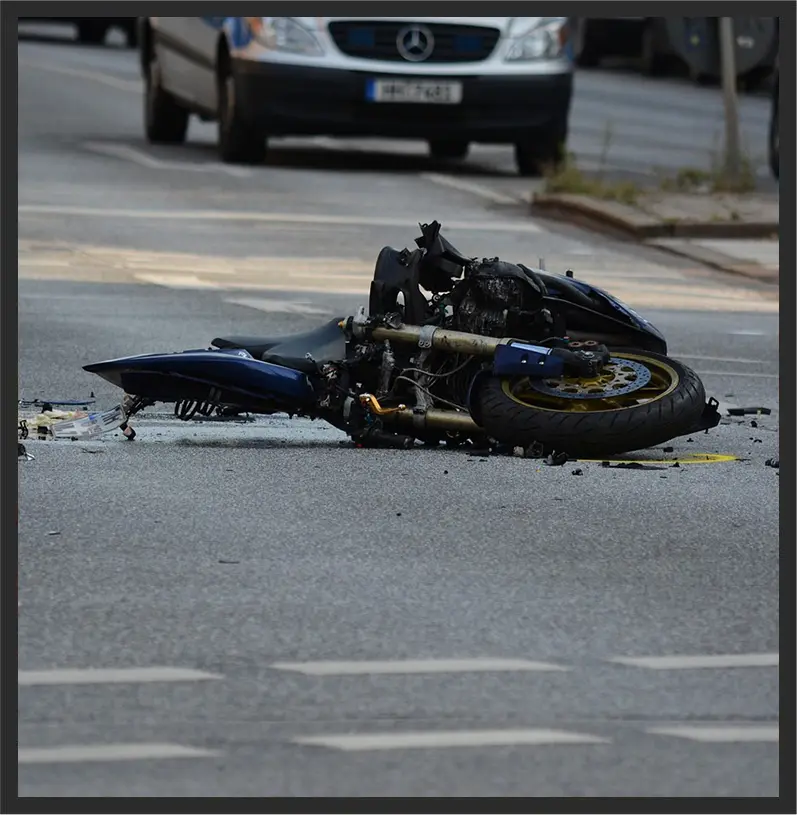What Should You Do After a Motorcycle Accident?
If you want to know what to do after a motorcycle accident, there are some critical steps to take in order to assist your claim. The moments after an accident are essential and can impact your future legal actions and rights. Here are the 6 most important steps you should take immediately following a motorcycle accident.

Collect Contact Information
Once everyone is safely out of the roadway, exchange information with anyone else involved in the crash. Get the name, address, phone number, insurance information, and license numbers for all drivers. Take a photo of the vehicles, and write down the license plate numbers, car makes and models, and a description of any vehicles involved in the accident. Keep these notes organized because if there are multiple parties involved, it’s possible to mix up one person’s insurer or vehicle with another.
Call the Police
Call 911 to get the police to the scene of the accident as soon as possible. If there has been property damage (anything over $500), be sure to file a police report. If you or anyone involved has been injured, be sure to request medical attention. The police report can be vital in your efforts to recover for damage to your bike or clothing or for physical injuries – many of which may not become evident for hours or even days after an accident! Letting the police know there was an accident is important for building a case. The police officers will keep their own records of the event, which can be referenced later. Be sure to take down the responding officers’ names and badge numbers. This will help your attorney follow up with you to collect any necessary information for your claim.
Take Note of your Surroundings
Documenting the scene may be difficult if you were seriously injured, but try to take notice of important information about the accident. This includes where, when, and how. Specifically, try to take note of the location of the accident, road conditions, speed limits, weather, lighting, the direction of travel of any vehicles involved.
Markdown or photograph the nearest intersection and mile marker. This will allow you to return later to take photographs and document the scene.
Talk to Witnesses
Eyewitnesses to an accident are important in any legal matter. If it’s possible, try to interview everyone who witnessed the accident and record their observations via an audio recorder on your phone or by writing it down on a piece of paper. Collect as much as you can while the incident is fresh in the mind of any witnesses immediately following the motorcycle accident. Get their contact information in case you or your lawyer needs to interview them at a later date.
NEVER Admit Fault!
When two people bump into each other, it’s not uncommon for both parties to quickly apologize. This is part of human nature. If you’re involved in something as jarring as a motorcycle accident, you may apologize to the other party without thinking.
Many times, the exact cause of an accident is unclear immediately after the accident. Accidents can be jarring, and you might not recall every detail until hours or even days later. Be careful what you say: statements at the accident scene can have serious legal consequences down the road.
Alert Your Insurance Company
Provide all of the information you collected from witnesses and people involved in the accident. Just like in step 5, remember to never admit fault, not even to an insurance agent. Much like filing a police report, contacting your insurer helps document the crash so it can be reviewed later.
